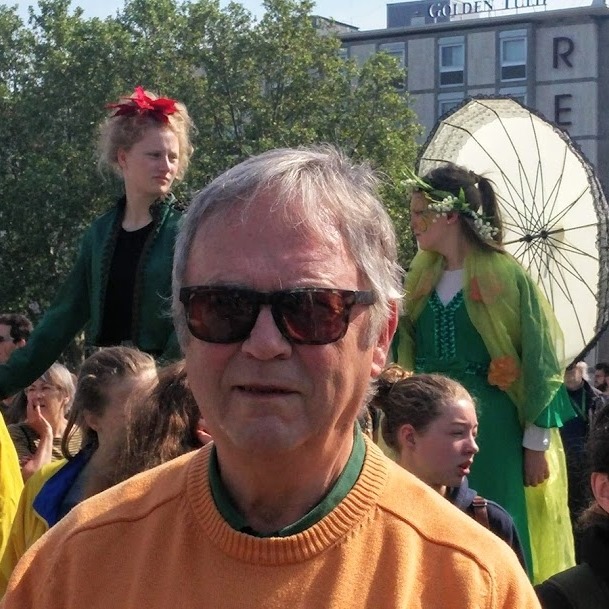"We must therefore urgently ask how we can get back to a quality journalism, which can present a (supposedly) good cause while maintaining a certain distance and without identifying with it completely. Otherwise no fair judgment is possible. We need journalists again who are able to question their own emotions and slow themselves down in their role as activists."
What about the big political talk shows on TV? What do you notice?
"They reflect the general situation. There are hardly any guests left who try to explain or understand the Russian side knowledgeably. The label 'Russia-sympathizer' has long become a reason not to listen. The people who assume this role, who understand Russia and are willing to speak out publicly, you can count on one hand.
"In addition, people who take on this unpopular role must be real dissidents. They are pretty much alone. Matthias Platzeck is alone in the SPD, Gabriele Krone-Schmalz is defamed by other journalists, General Harald Kujat has little support from the military. The CEOs fear sanctions. That is, whoever is committed to moderation in dealing with Russia, whoever dares to publicly criticize 'our' side, must be prepared for the cold shoulder."
In your appeal, you wrote that the memories of the world war are fading. Are journalists and politicians missing the understanding of what a great war would mean for everyone?
"War experiences are traumas that should not be described as 'advantages.' But it is true that both German post-war republics and thus also the politicians of that time were traumatized, or at least shaped, by the experience of war in East and West.
"The functionaries of the old Federal Republic were very aware that there is no ocean between us and Russia. That is why they always insisted on a balanced policy between the West and the potential opponent in the East. So we were rooted in the West, but were aware that we had a special role in seeking an understanding with the East. And this awareness was above party politics: Egon Bahr and Willy Brandt had it, and also Hans-Dietrich Genscher and Helmut Kohl."
How do you see the attitude of the new foreign minister, Heiko Maas, towards Russia?
"Maas is definitely one of the new elites of the Federal Republic, who think and act differently than their predecessors. It is particularly sad to see that the new SPD Foreign Minister considers the detente policy of his own party as obsolete. If I read Maas and his colleague Michael Roth correctly, they say clearly that detente policy is no longer appropriate for our time.
"Maas says he did not go into politics because of Willy Brandt and Egon Bahr's policy of detente, or because of the peace movement. He has told journalists that he would take a much harder course towards Russia than his predecessors Steinmeier and Gabriel. So Heiko Maas has clearly rejected the Social Democrats policy of detente.
But this reorientation is apparently supported by the SPD.
"That astounds me. I am wondering constantly when there will be a rebellion among the Social Democrats against this break with the best of their own tradition. The new Foreign Minister wants to be close to the Bild newspaper and to the 'Atlanticists' in all the international editorial offices. This too is new. In the past, the toughest anti-communist propaganda always came from the Bild and the Springer press. Today, articles against Russia, which is no longer communist but authoritarian, are found regularly in Die Zeit, the Spiegel, the Sueddeutsche Zeitung, the FAZ, and even in the taz."
With this orientation of politics and media, we as a society should have quite a problem when it comes to multi-faceted analysis.
"This problem is real. What gives me hope, however, is that despite this unified anti-Russian political-media front, the population thinks differently. Polls show that 70 to 90 percent of the people want to reach an understanding with Russia."
What does that show us?
"It means the policy of detente is much more popular among the population than it is with politicians and journalists."
(Note: You can view every article as one long page if you sign up as an Advocate Member, or higher).





